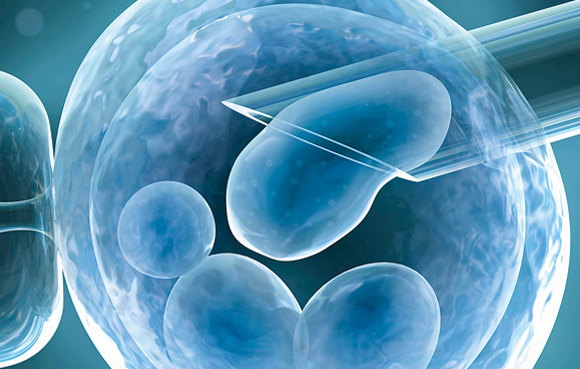A Dutch fertility clinic made a huge mistake that may have affected 26 families and their children.
The University Medical Centre in Utrecht, the Netherlands is an in vitro fertilization facility that creates human embryos from women’s eggs and men’s sperm and then implants them in wombs, usually for couples struggling with infertility.
However, the UMC said it made a “procedural error” and may have created embryos with the wrong sperm for up to 26 women, according to the Daily Mail. The clinic said the error occurred between April 2015 and November 2016, and some of the 26 women already are pregnant or have given birth.
In a statement, the UMC said it is unlikely that the embryos were created with sperm from the wrong father, but the possibility “could not be excluded.”
“During fertilisation, sperm cells from one treatment couple may have ended up with the egg cells of 26 other couples,” it continued in the statement. “Therefore there’s a chance that the egg cells have been fertilised by sperm other than that of the intended father.
Keep up with the latest pro-life news and information on Twitter. Follow @LifeNewsHQ
“For some of the 26 couples, frozen embryos are still available but the chance remains that they (too) have been fertilised by the sperm from a man other than the intended father.”
Several of the 26 women already gave birth to babies, and others are pregnant, according to the report. All of the families have been informed of the situation, the clinic said.
The NL Times reports more about the situation:
What went wrong at UMC Utrecht is that a tool not intended for the purpose was used in ICSI treatments. “It is a human error”, a spokesperson said to NOS. “Sperm from a previous treatment remained behind and my have ended up in the egg sell of the next treatment.” the procedure was stopped immediately after the error was discovered. …
The hospital launched an investigation and the involved couples were informed about what is going on. As was the Healthcare Inspectorate. The couples will each get a personal visit from the treating physician, who will do everything possible to accommodate them, according to NOS. This includes DNA tests for the couples who decide to do so. And the couples whose embryos are currently frozen can decide whether or not to have it placed.
The situation is troubling, not only because of the possible mix-up with the babies’ fathers, but also because of the potential outcome for the embryos, who already are unique human beings. If families discover that their unborn child (whether in the womb or in a freezer as an embryo) was created with the wrong sperm, they could be offered an abortion as a solution.
In the past decade, couples experiencing infertility or waiting until later in life to get pregnant have increasingly turned to IVF to conceive. The procedure involves harvesting sperm and eggs and using them to create living human embryos outside the womb; the embryos then are frozen or implanted in the woman’s womb.
While Catholics and some others oppose the method itself because it creates human life outside of its natural setting, the key concern among most pro-lifers is the destruction of human embryos that are left over from IVF.
Recent estimates from the United Kingdom indicate the number of embryos discarded after IVF are huge. Since 1991, approximately 2.5 million human embryos were destroyed in the UK after IVF procedures, Bioedge reports.
Some couples have their left-over IVF embryos destroyed, and others donate them to research. Both options are extremely troubling because they involve human lives. However, a third, life-affirming option is gaining attention across the world.
Embryo adoption, sometimes called snowflake adoption, allows couples to make adoption plans for their embryos with other adoptive couples. Although this doesn’t remove all the ethical concerns that some pro-lifers have with artificially creating human beings outside the womb, it does provide an alternative to discarding embryos and destroying lives.








